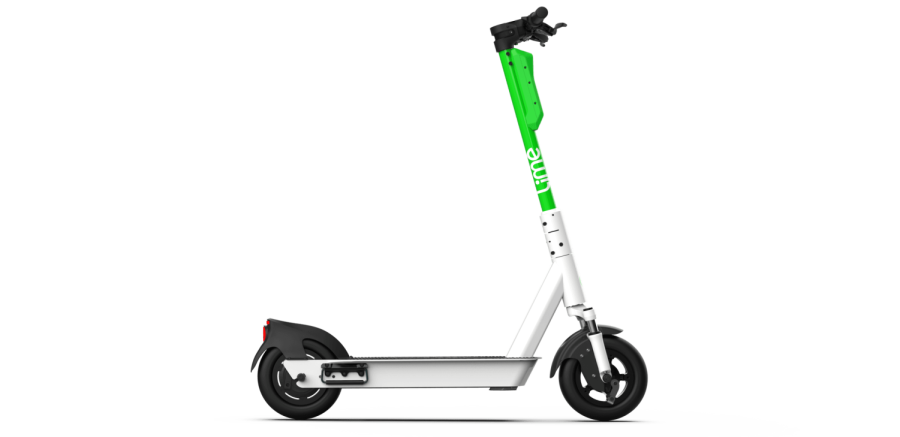Electric scooters coming to campus
E-Scooters, like the one seen here from Lime, offer convenient and cheap transportation for populations without access to veichles or in areas without nearby parking—like a university campus.
February 28, 2023
The SDSU Students’ Association approved a resolution Monday that offers support for an electric scooter rental operation on the SDSU campus and in the city of Brookings.
SA Sen. Nick Grote, the resolution’s author, said the next step is to schedule a meeting with SDSU administration and city officials to discuss the implementation of an electric scooter operation.
“Currently, we don’t have a timeline,” Grote said. “When we have that meeting we’ll know more.”
The program would fill a need for cheap transportation in Brookings, Grote said.
According to the Transportation Work Group, in the 2019 General Activity Fee Report, just under 10% of SDSU students do not have access to transportation. Many of these are international students who rate a transportation system as a high priority.
Most electric scooter companies charge a flat fee of $1 for each ride, plus an additional 15 to 33¢ per minute of riding, Grote said. This is charged automatically to the user through an app that they must download before riding. Some companies do not require users to have a smartphone to operate a scooter.
“This means of transportation is very affordable,” Grote said. “A ride from the farthest corners of campus would cost maybe two and a half bucks, and that’s at the max.”
Because the scooter operation would be run by a third party, it would not cost SDSU anything to implement. A specific company has not been chosen, but SA supports a competitive bid process for the operating agreement.
Grote added that because electric scooters are micro-vehicles, a scooter operation would reduce carbon emissions and road congestion.
Sophomore Brandon Reuss said that adding a scooter rental service would give students something to do around Brookings, as it makes it easier for them to travel.
“People living in Hanson and Meadows would have a huge advantage because it would lower their commute times,” Reuss said. “It would help add to the college experience.”
The idea started when Grote attended a leadership event in Tampa, Florida.
“While I was there, I rode these scooters from my hotel to the conference,” Grote said. “I thought it would be a great thing to implement at SDSU.”
To ride a scooter, users would first have to create an account through the app, which requires them to fill in their personal and payment information, and scan their driver’s license. The app also requires users to accept the terms and conditions, which legally protects the university in the case of an accident.
Scooter rental services would allow for SDSU to restrict certain areas, which would be designated in the app, Grote said. If users ride into those areas, the scooters would slow and beep at the users until they turn around.
SDSU could also designate areas as “lowered-speed zones” which cap the maximum speed of the scooters, as well as designate either mandatory or preferred parking areas. Under preferred parking, users can park the scooters anywhere, but receive a discount if they return them to a designated area.
B Wilson, a sophomore who uses his own electric scooter to travel across campus, says that a scooter rental service is a good idea.
“I don’t think it would cause problems,” Wilson said.
During winter months, SDSU could store some or all of the scooter fleet.
“These scooters have pretty good tires so they normally can run in the snow,” Grote said. “If there’s a bad snowstorm, we can contact the company and they can shut off all scooters.”
There are also options to mitigate against drunken drivers, Grote said. SDSU could shut off the scooters after a certain hour, and could even require users to pass a reaction time test on their phone.
“There really aren’t many downsides,” SA Vice President Anna Shane said. “I’m really excited by the idea.”
SDSU is entering a competitive bidding process that will allow administration to decide which company best fits with SDSU’s needs.
According to Students’ Association President Blake Pulse, Spin and Lime are two companies that have expressed interest in providing an e-scooter service at SDSU.
























